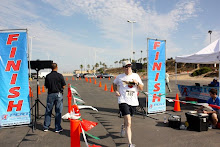Although Los Angeles had been known as a "hot bed of secession," the harbor area was jubilant at the end of the Civil War and the prospect of peace. In April 1865, a correspondent from the San Francisco Bulletin reported that "On the receipt by telegraph of the occupation of Richmond, 100 guns were fired in Wilmington, and crowds of the right kind of people perambulated the streets with torches, while the town was as bright as day with bonfires."
Wilmington is near San Pedro and is part of the Los Angeles Harbor area.
As seen throughout the country, however, this jubilation quickly turned to grief after President Abraham Lincoln was shot and died shortly thereafter on April 15, 1865. When the telegraph of Lincoln's assassination reached Wilmington, businesses and public houses were closed and hung with crape by grief-stricken residents.
General Phineas Banning, a successful businessman known as the "father of Wilmington," ordered his employees to suspend work on the day of Lincoln's funeral. The "heavy blows usually resounding in Banning's huge blacksmithing establishment" were temporarily silenced, and other locals followed this example and suspended work.
The Bulletin's correspondent noted that on the sacred day of Lincoln's funeral "not even a team or pleasure wagon was to be seen leaving the little town" and "it was a strange sight to see billiard tables and card-tables utterly deserted among so fun-loving a population as Wilmington contains."
While General Banning and the whole of Wilmington's population was described as having "shown themselves the true stuff," the local establishment of Tomlinson & Co. was criticized for being "utterly indifferent to the great national calamity that had just taken place" by continuing work with all their men until dark after news of Lincoln's funeral arrived -- unlike A.W. Timms who instantly closed his store and trimmed his whole establishment with black.
Subscribe to:
Post Comments (Atom)

No comments:
Post a Comment